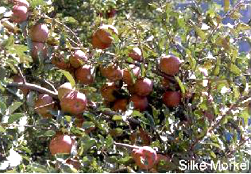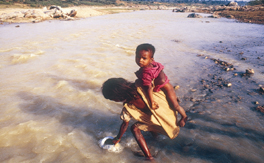Water day: media pack
This document presents the event of
This document presents the event of

The African Group and the G77 plus China outlined their negotiating positions in back to back press conferences at the Barcelona climate talks on 3rd November 09. This document contains: 1 African Group press conference 2. G77 and China press conference

The African Group and the G77 plus China outlined their negotiating positions in back to back press conferences at the Barcelona climate talks on 3rd November 09. This document contains: 1 African Group press conference 2. G77 and China press conference

This document is the statement by Yvo de Boer at the opening of the Barcelona Climate Change Talks 2009 on 2 November 2009 at Barcelona, Spain.
<p>Areva has come under pressure after a joint statement from safety regulators urged it to revise control systems for its EPR design.</p>

This study conducted during January- March, 2007, in the Kullu Valley of Himachal Pradesh in India, takes the apple as an indicator crop to investigate the positive and negative effects of climate change on farm economy. It explores the impacts it had on the agricultural economy of the hill farmers who were forced to abandon apple farming, and those to whom apple farming came to be a new option.

<p>The poverty ratio or the number of poor as a percentage of total population in India for 2004-05 is estimated at 37.2 per cent, according to this report submitted by the Suresh Tendulkar committee recently.
<p>The development of rural housing in a manner that results in adequate, quality shelter for inhabitants of Mahatma Gandhi’s “real India” is a challenge before the nation. What are the issues confronting rural housing development in India? The litany of its woes is endless.

The Climate Debt Crisis marks a major step in efforts to draw the links between the overuse of the world
This report is a summary of the research and results of the

This new WWF study explores how the glaciers in the Indian Himalayas are going through change and says that smaller glaciers in the Himalayas are proving much more vulnerable to climate change impacts than previously thought, with significant implications for the livelihood and freshwater supplies of millions.

This latest OXFAM report reviews the impact of climate change on Pakistan

This latest report by 2030 Water Resources Group, led by IFC & McKinsey warns that governments must address booming water demand or face grave human and environmental. Says that that in 20 years, water demand will be 40% higher than it is today, and more than 50% higher in the most rapidly developing countries.
The carbon cycle is closely linked to the climate system and is influenced by the growing human population and associated demands for resources, especially for fossil-fuel energy and land. The rate of change in atmospheric CO2 reflects the balance between carbon emissions from human activities and the dynamics of a number of terrestrial and ocean processes that remove
The 2009 edition of the World Energy Outlook (WEO) provides updated projections that take into account the implications of the global credit crisis, the economic slowdown and the recent slump in the prices of oil and other forms of energy.
This paper describes how achieving food sovereignty will entail a fundamental shift away from the industrial and neo-liberal paradigm for food and agriculture towards: More direct democracy and greater citizen participation in framing policies for food
In order to negotiate effectively on an international regime for climate change, US policymakers must have an accurate understanding of the constraints and considerations that determine the negotiating positions of key countries. India plays a pivotal role in these efforts.
Assessing impacts of public investments has long captured the interest and attention of the development community. This paper presents the evolution of different methods and approaches used for ex ante appraisal, monitoring, project evaluation, and impact assessment over the last five decades.
With the threat of increased disasters from climate change, many countries are already taking steps to reduce their vulnerability to weather and climatic hazards, such as floods, cyclones, heatwaves and droughts. Adaptation to climate change is a relatively new concern, but it can call on a rich tradition spanning many decades of practices to reduce disaster risks.
Geographical information and remote sensing systems play a special role in the Hindu Kush-Himalayan region in support for informed decision making.